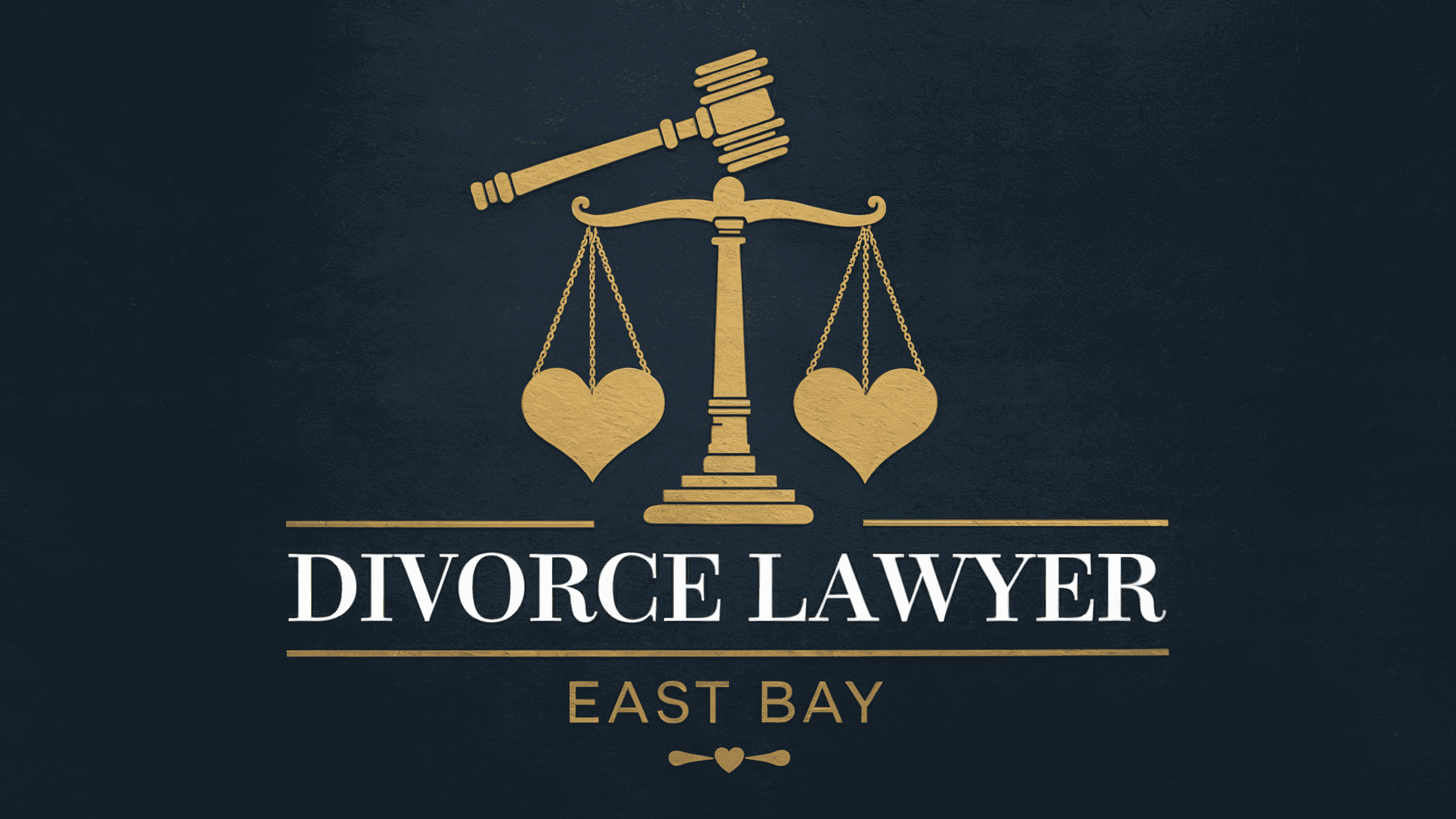Child custody disputes in Walnut Creek demand experienced legal representation from Divorce Lawyer East Bay. Board-certified Family Law Specialists at 1806 Bonanza St provide comprehensive custody solutions through litigation and mediation services. The firm of Child Custody Lawyers navigate complex legal frameworks surrounding physical custody, legal custody, visitation rights, and California child support guidelines.
Critical custody matters include:
- Initial custody determinations
- Emergency modifications
- Domestic violence protection
- Child abuse allegations
- Parenting plan development
- Support calculation disputes
The legal team prioritizes children’s best interests while establishing sustainable custody arrangements. Whether managing straightforward agreements or high-conflict situations, attorneys develop customized strategies addressing each family’s unique dynamics.
Contact Divorce Lawyer East Bay at (925) 320-6996 for custody consultation. Child Custody Lawyers Walnut Creek location serves families throughout East Bay with cost-effective legal solutions focused on long-term stability and protection.
Areas of expertise include:
- Interstate custody disputes
- Relocation cases
- Supervised visitation
- Joint custody arrangements
- Sole custody petitions
- Emergency court orders
Professional representation ensures proper handling of complex custody documentation while advocating for children’s wellbeing and family preservation throughout legal proceedings.
Understanding Child Custody Rights

Child Custody Rights and Legal Framework
Physical custody and legal custody constitute the two primary forms of parental rights in [[Family law|family law]] systems. Physical custody establishes the child’s primary residence, while legal custody governs parental authority over crucial decisions regarding [[Education]], [[Healthcare]], and religious matters. Courts may award these rights either exclusively (sole custody) or collectively (joint custody).
[[Joint custody]] arrangements facilitate shared parental responsibilities, enabling both [[Parent|parents]] to maintain significant involvement in their child’s development. The [[Family court|family court]] system typically favors this approach unless substantial evidence indicates parental unfitness. Conversely, [[Sole custody]] grants exclusive parental rights to one guardian, particularly in cases involving documented instability or potential risks to child welfare.
The [[Best interests of the child|child’s best interests]] doctrine guides judicial custody determinations. Courts evaluate multiple factors, including:
- Established parent-child bonds
- Parents’ psychological and physical well-being
- Domestic environment stability
- [[Child abuse|Abuse]] history
- [[Substance abuse|Substance misuse]] concerns
- Age-appropriate child preferences
These evaluations culminate in legally binding [[Court order|court orders]] that establish comprehensive guidelines for:
- Decision-making authority
- Parenting time schedules
- [[Visitation rights]]
- Co-parenting protocols
This structured framework ensures clear parameters for ongoing parental responsibilities and child care arrangements.
Navigating Custody Mediation Services
Custody Mediation: A Comprehensive Guide for Parents
Professional custody mediation services offer divorcing parents a strategic alternative to traditional court litigation. This Alternative Dispute Resolution (ADR) method enables parents to collaborate with certified family law mediators, creating sustainable custody arrangements that prioritize their children’s welfare. It is recommended that each parent retains counsel during the mediation process. Safe communication environments allow parents to openly discuss their concerns and needs. Additionally, mediation fosters cooperation and communication between parents, which is essential for effective co-parenting.
The structured mediation process typically unfolds in several key phases:
- Initial orientation and assessment
- Individual parent consultations
- Joint negotiation sessions
- Agreement documentation
- Court submission and validation
Licensed mediators, often members of organizations like the Association of Family and Conciliation Courts (AFCC), facilitate constructive dialogue using proven conflict resolution techniques. These professionals maintain strict confidentiality while guiding parents through evidence-based custody solutions aligned with established family law frameworks.
Key benefits of custody mediation include:
- Cost-effectiveness versus traditional litigation
- Enhanced parental autonomy in decision-making
- Reduced emotional impact on children
- Improved co-parenting communication
- Faster resolution timeframes
California Family Code Section 3170 specifically requires mediation before court hearings in contested custody cases. Walnut Creek families can access mediation services through:
- Private mediators
- Court-connected programs
- Family Justice Centers
- Certified ADR providers
Successful mediation culminates in a Memorandum of Understanding (MOU) or Parenting Plan Agreement, which courts typically incorporate into final custody orders. Even partial agreements achieved through mediation can significantly streamline subsequent judicial proceedings.
Contact local family law resources or the Contra Costa County Superior Court for detailed information about available custody mediation services.
Choosing Your Legal Strategy

Legal Strategy Selection for Child Custody Cases
The strategic approach to child custody proceedings in Walnut Creek demands careful consideration of legal methodologies aligned with California Family Law principles. Legal professionals employ diverse tactics ranging from litigation-focused representation to Alternative Dispute Resolution (ADR) methods, customizing solutions for each family’s distinct situation. The emphasis on affordable mediation options helps families resolve disputes while maintaining control over outcomes. The presence of top rated attorneys in Walnut Creek ensures access to experienced legal representation.
Board-certified Family Law Specialists, recognized by the State Bar of California, demonstrate mastery in complex custody litigation. These specialists navigate intricate custody determinations while adhering to California Family Code Section 3040, which establishes custody preference orders. Leading firms specialize in targeted representation, including father’s rights advocacy and gender-specific custody challenges. Understanding the importance of children’s well-being helps attorneys advocate effectively for the best outcomes in custody arrangements.
Key decision factors in strategy selection include:
- Parental conflict assessment
- Community property division complexity
- Special circumstances requiring court-mandated supervision
- Child development considerations
- Jurisdictional requirements under the Uniform Child Custody Jurisdiction and Enforcement Act (UCCJEA)
Legal professionals facilitate evidence compilation, court documentation preparation, and compliance with California Rules of Court requirements. Their expertise with Superior Court procedures and relationships with Family Court Services personnel proves crucial for optimal case outcomes.
Strategy implementation focuses on:
- Physical custody arrangements
- Legal custody determinations
- Parenting time schedules
- Child support calculations
- Modification provisions
- Interstate custody considerations
Each approach prioritizes the “best interests of the child” standard while maintaining parental rights protection under applicable state statutes.
Modifying Existing Custody Arrangements:
Custody Modification in California: Legal Requirements and Process
Parents seeking to modify child custody arrangements in California must demonstrate substantial changes in circumstances affecting the child’s welfare. Key grounds for modification include:
- Parental relocation (geographical moves)
- Work schedule modifications
- Evolution of children’s developmental needs
- Consistent violations of existing custody orders
Filing Requirements:
The modification process begins in the original jurisdiction court through a formal petition. Essential documentation includes:
- Form FL-300 (Request for Order)
- Form FL-311 (Child Custody and Visitation Application)
- Supporting declaration detailing changed circumstances
Legal Standards:
Courts evaluate modifications using the “best interests of the child” standard, considering:
- Child’s health and safety
- Emotional bonds with each parent
- Community and school stability
- Domestic violence history
- Parental ability to cooperate
- The court may also consider any existing protection orders that impact the custody situation.
Alternative Resolution Methods:
- Court-mandated mediation programs
- Family court services
- Private custody evaluations
- Settlement conferences
Emergency Modifications:
Courts expedite hearings when immediate risks exist:
- Domestic violence
- Child abuse allegations
- Substance abuse
- Parental mental health crises
Though not required, seeking legal representation is highly recommended for contested modification cases to ensure proper handling of complex proceedings. Jurisdiction transfers may occur when children relocate across county lines, requiring coordination between California family courts. Evidence such as custody journals and parenting records can strengthen your modification request. Older children’s preferences receive increased consideration, though not binding authority, in modification proceedings.
Building Your Support Team

Community-Based Organizations (CBOs) serve as essential support networks during custody proceedings, offering comprehensive family support services and specialized resources. These organizations, similar to non-profit organizations and social service agencies, provide critical assistance through:
- Employment services and job training programs
- Healthcare navigation and insurance advocacy
- Family counseling and parenting resources
- Housing assistance programs
- Financial literacy education
Legal representation teams coordinate with Americans with Disabilities Act (ADA) compliance officers to secure necessary courtroom accommodations and accessibility requirements. Parents can receive disability accommodations when attending appointments or completing required documentation. Professional evaluators, including certified public accountants (CPAs) and child development specialists, can document and analyze:
- Child-related expenses
- Educational requirements
- Medical needs
- Special accommodations
- Financial projections
Working with qualified social workers and family advocacy groups strengthens case documentation while ensuring access to vital community resources throughout the legal process. These evidence-based support systems create a comprehensive framework for successful custody proceedings. Additionally, legal representation can help establish paternity rights to secure the father’s role in the child’s life. Support services continue until the child reaches age twenty-one, ensuring long-term stability for families.
Frequently Asked Questions
How Long Does It Typically Take to Resolve a Child Custody Case?
Child custody litigation ([[Child custody|custody cases]]) timeframes vary significantly based on multiple factors. [[Family court|Family courts]] typically resolve uncontested cases within 4-6 weeks, while contentious [[Legal dispute|disputed cases]] can extend 6-18 months or longer. Key determinants affecting case duration include:
- [[Alternative dispute resolution|Mediation]] participation
- Parental cooperation levels
- [[Family law|Family court]] docket availability
- [[Legal guardian|Custody evaluation]] requirements
- Geographic jurisdiction complexities
[[Joint custody|Shared custody agreements]] reached through [[Mediation|collaborative methods]] generally resolve faster than cases requiring extensive [[Court|judicial intervention]]. Parents working with qualified [[Family law attorney|family law attorneys]] and embracing [[Alternative dispute resolution|ADR options]] often achieve faster resolution timeframes compared to prolonged litigation approaches.
Critical factors impacting timeline acceleration:
- Prompt document submission
- Consistent court appearance attendance
- Professional custody evaluator availability
- Interstate jurisdiction resolution speed
- Emergency custody determination needs
What Documentation Should I Gather Before Meeting With a Custody Attorney?
Essential legal documentation for child custody consultation includes:
Financial Records:
- Tax returns (previous 3 years)
- Pay stubs and income statements
- Bank statements and investment accounts
- Child-related expenses and receipts
Medical Documentation:
- Children’s health records
- Vaccination history
- Mental health evaluations
- Insurance coverage details
Educational Materials:
- School records and report cards
- IEP or special education documents
- Extracurricular activity records
- Teacher communications
Parental Communication Evidence:
- Text messages and emails
- Social media interactions
- Custody schedule logs
- Visitation records
Home Environment Documentation:
- Photos of living space
- Proof of residence
- Child’s bedroom setup
- Safety measures in place
Supporting Documentation:
- Character reference letters
- Daycare records
- Calendar of parenting time
- Police reports (if applicable)
The documentation aligns with Family Law requirements established by the American Bar Association and state-specific custody regulations, strengthening legal position during custody proceedings.
Can Grandparents or Other Relatives Request Visitation Rights in California?
Grandparents’ visitation rights in California are protected under California Family Code Section 3100-3105, allowing them to petition for court-ordered time with their grandchildren. The law recognizes two primary scenarios for grandparent visitation:
- Cases involving divorced or separated parents
- Situations where parents are living separately
To successfully petition for visitation rights, grandparents must establish:
- A pre-existing relationship with the grandchild
- An emotional bond between grandparent and grandchild
- The balance between the child’s best interests and parental rights
- Clear evidence that visitation benefits the child’s well-being
Other relatives may also seek visitation rights through California courts, particularly in cases involving:
- Death of a parent
- Domestic partnership dissolution
- Legal separation proceedings
- Marriage annulment
Courts consider multiple factors when evaluating visitation requests, including:
- The child’s relationship with the petitioning grandparent
- Parents’ current custody arrangement
- Impact on the child’s daily routine
- Geographic proximity between parties
California courts consistently prioritize parental rights while balancing the child’s best interests in grandparent visitation cases.
How Are Custody Arrangements Affected if I Need to Relocate for Work?
Child custody relocation [legal term] requires formal approval from the family court system when a custodial parent seeks to move for employment purposes. The court evaluates several critical factors in accordance with child custody laws:
- Job-related necessity and career advancement opportunities
- Distance of proposed relocation and impact on visitation schedules
- Child’s established relationships with school, friends, and community
- Technology-enabled communication methods for maintaining parent-child bonds
- Proposed modifications to the existing parenting plan
- Financial benefits that could enhance child welfare
Family court judges prioritize the “best interests of the child” doctrine when considering relocation requests. Non-custodial parents maintain legal rights to contest moves through court petitions and may request custody modifications. Courts typically require:
- Written notice to non-custodial parent (30-90 days advance)
- Detailed relocation plan outlining new arrangements
- Evidence of employment offer or transfer
- Proposed revised visitation schedule
- Plan for maintaining meaningful contact
Interstate custody matters fall under the Uniform Child Custody Jurisdiction and Enforcement Act (UCCJEA), which governs jurisdictional issues across state lines. Virtual visitation rights and long-distance parenting plans have become increasingly relevant factors in modern relocation cases.
What Role Do Children’s Preferences Play in Custody Decisions at Different Ages?
Children’s Custody Preferences in Family Law: Age-Based Legal Considerations
Courts evaluate children’s custody preferences using age-specific criteria aligned with developmental psychology and family law precedents. Judicial consideration follows a graduated scale:
Ages 0-9:
- Limited weight given to stated preferences
- Focus on attachment theory and primary caregiver relationships
- Child psychologist evaluations heavily influence decisions
Ages 10-13:
- Moderate consideration of preferences
- Assessment of reasoning capacity and emotional maturity
- Guardian ad litem often appointed to represent child’s interests
Ages 14-17:
- Substantial weight given to expressed preferences
- Recognition of adolescent autonomy under family law
- Court considers factors like academic stability and peer relationships
Key Legal Framework:
- Best Interest of the Child Doctrine remains paramount
- Uniform Child Custody Jurisdiction and Enforcement Act (UCCJEA) guidelines
- State-specific custody statutes and case law precedents
Courts balance children’s preferences against other critical factors including:
- Parental fitness
- Home environment stability
- Sibling relationships
- Educational continuity
- Physical and emotional well-being
This age-based approach ensures developmentally appropriate consideration of children’s voices while maintaining focus on their overall welfare.




